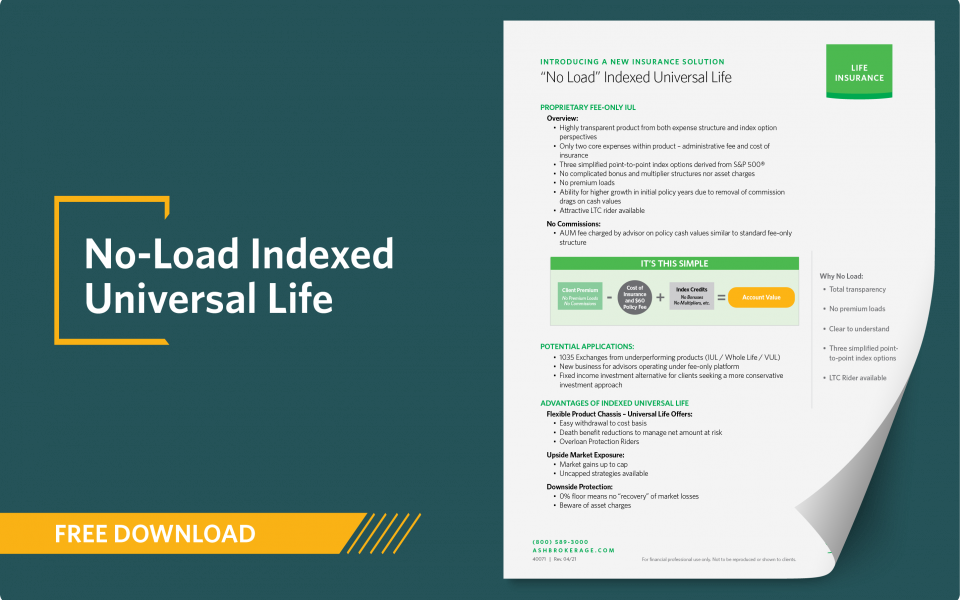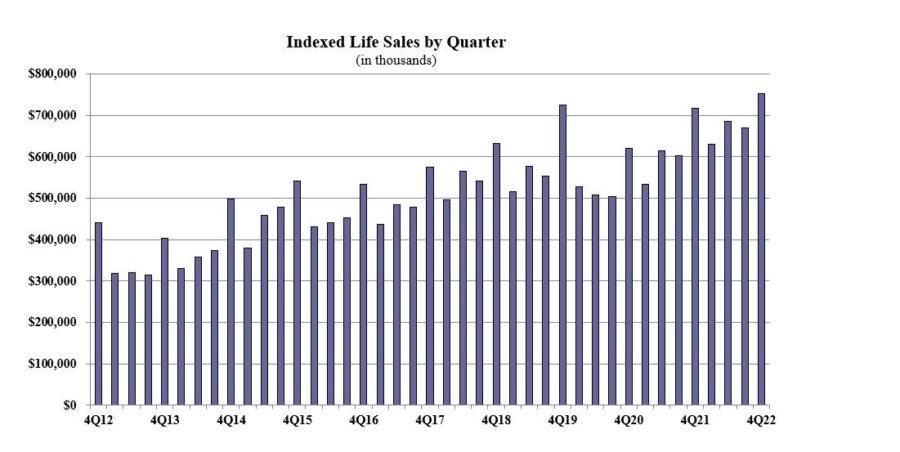All Categories
Featured
Table of Contents
1), usually in an effort to beat their classification standards. This is a straw guy disagreement, and one IUL people like to make. Do they compare the IUL to something like the Vanguard Total Supply Market Fund Admiral Show no tons, an expense ratio (ER) of 5 basis factors, a turnover proportion of 4.3%, and a remarkable tax-efficient document of distributions? No, they compare it to some awful actively taken care of fund with an 8% tons, a 2% ER, an 80% turn over ratio, and a horrible record of temporary capital gain distributions.
Shared funds usually make yearly taxable circulations to fund proprietors, also when the worth of their fund has gone down in worth. Mutual funds not only call for income coverage (and the resulting annual taxation) when the shared fund is going up in value, yet can also enforce earnings taxes in a year when the fund has gone down in worth.
You can tax-manage the fund, gathering losses and gains in order to lessen taxable distributions to the investors, however that isn't in some way going to change the reported return of the fund. The ownership of shared funds might call for the mutual fund owner to pay approximated tax obligations (universal life insurance premium calculator).

IULs are easy to place to make sure that, at the proprietor's death, the recipient is exempt to either earnings or estate taxes. The exact same tax obligation reduction techniques do not function almost also with shared funds. There are numerous, often pricey, tax obligation catches associated with the timed trading of mutual fund shares, catches that do not use to indexed life Insurance policy.
Opportunities aren't really high that you're going to undergo the AMT as a result of your mutual fund circulations if you aren't without them. The rest of this one is half-truths at ideal. For example, while it holds true that there is no earnings tax obligation as a result of your heirs when they acquire the profits of your IUL policy, it is likewise real that there is no earnings tax obligation because of your successors when they acquire a common fund in a taxable account from you.
Index Insurance Company
There are better methods to prevent estate tax concerns than buying investments with reduced returns. Mutual funds may trigger income taxation of Social Security advantages.

The growth within the IUL is tax-deferred and may be taken as tax obligation free earnings through fundings. The policy owner (vs. the mutual fund supervisor) is in control of his/her reportable income, therefore allowing them to reduce or even eliminate the taxation of their Social Safety advantages. This is excellent.
Here's an additional minimal problem. It holds true if you get a mutual fund for claim $10 per share prior to the circulation day, and it disperses a $0.50 distribution, you are after that mosting likely to owe tax obligations (most likely 7-10 cents per share) regardless of the fact that you haven't yet had any kind of gains.
In the end, it's actually concerning the after-tax return, not just how much you pay in taxes. You are going to pay even more in tax obligations by utilizing a taxed account than if you get life insurance coverage. You're additionally most likely going to have even more money after paying those taxes. The record-keeping demands for possessing shared funds are considerably more complex.
With an IUL, one's records are kept by the insurance policy company, copies of yearly declarations are sent by mail to the proprietor, and distributions (if any) are completed and reported at year end. This set is likewise type of silly. Certainly you should maintain your tax documents in instance of an audit.
Flexibility Of Universal Life
Rarely a factor to get life insurance. Shared funds are commonly component of a decedent's probated estate.
Additionally, they are subject to the hold-ups and expenses of probate. The earnings of the IUL plan, on the other hand, is constantly a non-probate distribution that passes beyond probate directly to one's named recipients, and is consequently exempt to one's posthumous creditors, unwanted public disclosure, or similar hold-ups and costs.
Medicaid incompetency and lifetime income. An IUL can give their proprietors with a stream of earnings for their whole life time, regardless of how long they live.

This is beneficial when organizing one's events, and converting properties to income prior to a retirement home arrest. Mutual funds can not be transformed in a comparable fashion, and are almost always thought about countable Medicaid assets. This is another stupid one advocating that bad individuals (you recognize, the ones that require Medicaid, a federal government program for the poor, to spend for their assisted living home) should utilize IUL instead of shared funds.
Best Performing Iul
And life insurance policy looks awful when compared fairly against a pension. Second, individuals who have money to purchase IUL over and beyond their retired life accounts are mosting likely to have to be dreadful at taking care of cash in order to ever get approved for Medicaid to spend for their assisted living home expenses.
Chronic and incurable disease biker. All policies will permit an owner's easy access to cash money from their policy, commonly forgoing any kind of surrender penalties when such individuals suffer a major health problem, need at-home treatment, or come to be confined to a nursing home. Mutual funds do not supply a similar waiver when contingent deferred sales costs still relate to a shared fund account whose proprietor requires to sell some shares to fund the prices of such a stay.
New York Universal Life Insurance
You get to pay even more for that benefit (rider) with an insurance coverage policy. What a lot! Indexed universal life insurance policy gives fatality benefits to the beneficiaries of the IUL owners, and neither the proprietor nor the recipient can ever shed money due to a down market. Mutual funds provide no such warranties or death advantages of any kind.
I absolutely do not need one after I reach monetary self-reliance. Do I want one? On average, a purchaser of life insurance policy pays for the true price of the life insurance policy advantage, plus the prices of the policy, plus the revenues of the insurance business.
Financial Foundation Iul
I'm not entirely sure why Mr. Morais included the whole "you can not shed money" once again right here as it was covered rather well in # 1. He simply desired to duplicate the finest selling point for these points I expect. Once again, you do not shed nominal dollars, yet you can shed real bucks, as well as face significant opportunity price as a result of reduced returns.

An indexed universal life insurance policy policy owner may trade their policy for an entirely various plan without activating earnings taxes. A mutual fund owner can stagnate funds from one common fund business to another without offering his shares at the previous (therefore activating a taxed occasion), and repurchasing brand-new shares at the last, usually subject to sales costs at both.
While it holds true that you can trade one insurance coverage for another, the factor that people do this is that the very first one is such an awful plan that also after getting a new one and experiencing the very early, unfavorable return years, you'll still appear in advance. If they were offered the best policy the initial time, they should not have any need to ever trade it and go with the early, adverse return years again.
Table of Contents
Latest Posts
Insurance Indexing
Universal Life Quotes Online
Universal Life Quotes
More
Latest Posts
Insurance Indexing
Universal Life Quotes Online
Universal Life Quotes